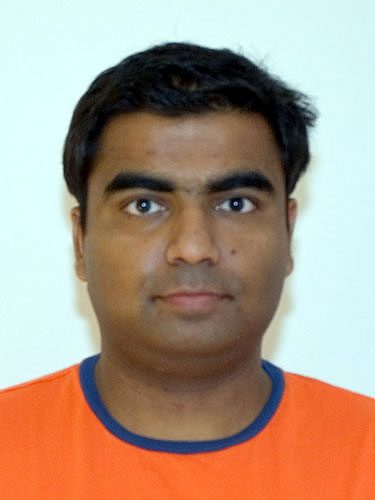
Tagger Chanchal Gupta, of New York state, ranks as the web’s most influential bookmarker according to CollaborativeRank. When it comes to finding and categorizing new web pages, Chanchal Gupta is the most trusted surfer in town.
New experimental software has identified Gupta as one of the most influential social bookmarkers on the web.
The software, CollaborativeRank, is a search engine that places great emphasis on results found by highly ranked web surfers.
When a search term is entered into CollaborativeRank, the highest results are pages found by people like Gupta.
The system is akin to Google, which returns pages ranked highly by its PageRank algorithm. But in this case, the pages returned are those found by web surfers identified as the most reputable users of the popular del.icio.us shared bookmarks service.
The new approach is possible thanks to data in CollaborativeRank’s league table of the top 500 quick-off-the-draw del.icio.us users, a fixture that is attracting many bookmarkers curious to see how their keywords stack up against peers.
Gupta, alias notmuch, is a 28-year-old software developer in Schenectady, New York, who has been using del.icio.us to bookmark URLs for about a year.
Gupta was surprised to learn his of his top ranking.
“Wow, it feels good,” he said. “I use del.icio.us for bookmarking any piece of information I find useful on the web. Del.icio.us adds a bit of subjectivity and context using tags. It’s like adding a human touch.
“I have found so many interesting links via the del.icio.us system. Sometimes, when I am the first to post an interesting link, I feel good about it.”
Launched in April as a research project, CollaborativeRank aims to use social bookmarking’s “in” crowd to refine search functions.
“There is something missing from PageRank: a reward system for people who create hyperlinks to helpful or timely websites,” said CollaborativeRank’s developer, Amir Michail, a software engineering researcher at the University of New South Wales in Sydney, Australia.
“Del.icio.us (already) has a reason for users to provide helpful or timely URLs: convenient management of their bookmarks. CollaborativeRank gives them another reason: greater influence over search rankings.”
The system looks for those who bookmark new pages first and with keywords, or tags, later used by others. Deemed reputable, these users are rewarded with high placement and more influence on the search engine’s results.
Tags, rapidly gaining popularity as a way to describe and order all sorts of online information, are also analyzed by the software to identify experts in particular topics.
Although the project is still experimental, introducing human bookmarking behavior into search engines could make search results fresher, more personal and more reliable, said Michail.
Although the league table currently provides little more than “bragging rights” for navel-gazing del.icio.us users, Michail said he plans to add to search results the names of users whose bookmarking pushed pages up the ranking. This way, users will be able to see who was responsible for a site coming out as the top recommendation.
Joshua Schacter, developer of the increasingly popular del.icio.us service, which already includes a list of popular links, told Wired News he would like to add a similar feature to del.icio.us that “exposes key influencers.” Until then, the users will go on building their own reputation.
“I surf for three to four hours a day and bookmark a large portion of what I have found to be interesting reading in the hope that someone else will find it useful,” said John D’Agostino, a New South Wales economics student who is the sixth-most-prolific del.icio.us user, according to CollaborativeRank.
“The social-bookmarking sphere is only now becoming mainstream,” he said. “To be an early ‘pioneer’ of the system is a great honor. If I’m still in that top list of users in six to 12 months’ time, that’s when I’ll believe this title will be one of higher status.”